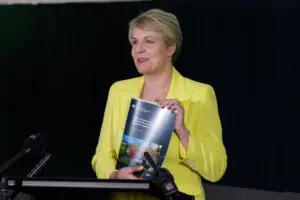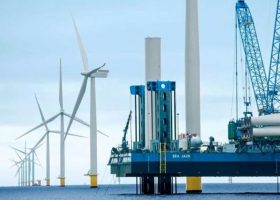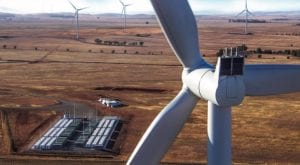A coalition of more than 40 social sector organisations has called on all political parties and candidates to take stronger action on climate change and to develop plans to protect vulnerable communities from the impacts of climate change.
Rising energy costs have been a feature of the ongoing debate about Federal and State energy and climate change policies.
The Coalition Government has often attempted to paint investment in renewable energy and action on climate change as being at odds with lowering energy costs.
But in today’s statement, the social service organisations have made clear that it is policy certainty, and a proactive transition to clean energy technologies, that are key to lowering energy prices and protecting the vulnerable.
In the statement, the social justice and community organisations called for an ambitious plan to transition to zero net emissions, stressing that it strong climate and energy policies are crucial to tackling the wider issues of poverty, inequality and the protection of human rights.
“Climate change and a slow, poorly managed transition to zero net emissions is a major threat to achieving our vision.“ the joint statement said.
“Climate change is not only a threat to our environment, it threatens people’s homes, livelihoods, health, quality of life, employment and increases risks and burdens for future generations. It is a social justice and intergenerational equity issue.”
“The well planned transition can be achieved in a low-cost, equitable and inclusive manner, with targeted support, to make sure that people on low incomes or experiencing disadvantage are not left worse off.”
The groups have stressed that delays in shifting towards a lower emissions economy will only lead to higher costs in the longer term.
“The Australians most vulnerable to the effects of climate change are those who are already suffering hardship and disadvantage.” The Salvation Army’s General Manager of Policy and Advocacy Jennifer Kirkaldy said.
“The Salvation Army works closely with disadvantaged Australians and with communities who have been devastated by natural disasters. In Australia and internationally, The Salvation Army strongly supports action on climate change.”
Signatories to the statement include ACOSS, including its State and Territory branches, the Asylum Seeker Resource Centre, Anglicare Australia, the Salvation Army, and the Public Interest Advocacy Centre.
The groups, who advocate for members of the community struggling with poverty and the impacts of rising energy prices, are calling on parties and election candidates to adopt ambitious commitments to tackle climate change.
The joint statement calls on political leaders to commit to supporting vulnerable communities, recognising that low-income households are least equipped to prepare for the impacts of climate change.
“People with fewer resources and capabilities have less money, choice, power and social connections to cope, adapt or recover. Failing to halt climate change will cause greater poverty and inequality in the future.” the Statement said.
The groups have called on the leaders to do the following:
Support communities to develop local adaptation and resilience plans, including funds to develop an Australian climate change social vulnerability map.
Support for improving energy efficiency in existing homes like mandatory energy efficient standards for private rental and public housing.
Emissions reduction targets of at least 45% by 2030, and zero net emissions before 2050.
The CEO of ACOSS Dr Cassandra Goldie highlighted that while this year’s election campaign had featured a lot of discussion of the cost of climate change policies, the costs of failing to act must not be overlooked.
“This election there’s a lot of talk about costs but hardly any discussion of just how much the climate crisis is costing people, especially people on low incomes.” Goldie said.
“Global warming is not only a threat to our environment, it threatens homes, livelihoods and health, especially for people who are struggling to get by.”
“People in poor energy efficiency homes or living on the streets suffer during heatwaves, which cause more death than any other natural disaster.”
ACOSS has previously released modeling, commissioned from Frontier Economics, showing that more ambitious greenhouse gas emissions reduction targets will have little impact on household electricity costs.
The modeling, commissioned in partnership with the Brotherhood of St Laurence, showed that the costs of a 65% emissions reduction target would be scarcely different from achieving a 26% reduction target.
The modeling also showed that policies supporting emissions reduction would lead to lower overall costs for households.









